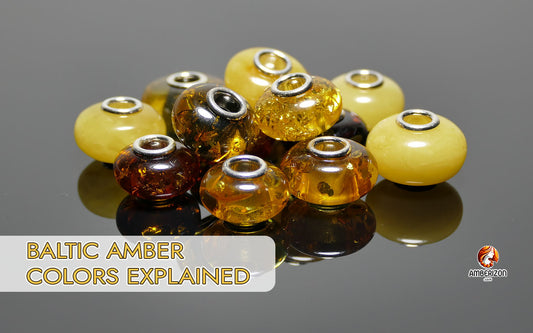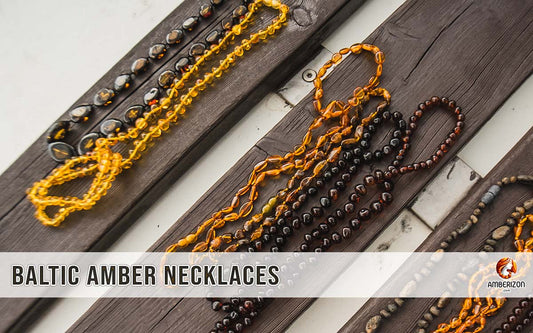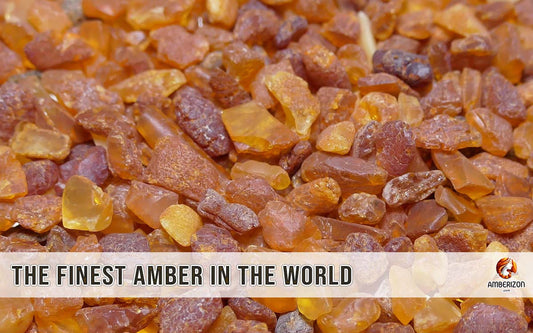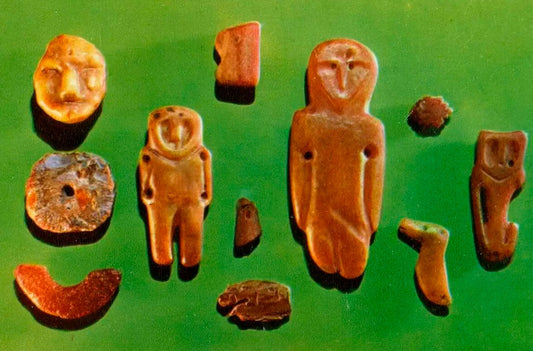
How to Say 'Amber' in Different Languages
How Amber is Called in Other Languages

Amber, the special golden gem, has different names around the world! Amber's name varies across languages, reflecting its historical trade routes and cultural significance. Here's a glimpse into how different languages say "amber":

In English, it's called "amber." But in Spanish, it becomes "ámbar," and in French, it's "ambre." Different languages have their own special names to talk about this beautiful gem.
In German, it's known as "Bernstein," while in Italian, it's "ambra." Even in Chinese and Japanese, they have similar-sounding names: "琥珀" (hǔpò) in Chinese and "琥珀" (kohaku) in Japanese.
Arabic speakers call it "عنبر" (anbar), and in Hindi, it's "कदार" (kadaar). It's amazing how one gem can have so many different names in different parts of the world!
Muslim (commonly used across the Muslim world): derived from the Arabic name ‛Anbar, meaning 'perfume' or 'ambergris'. In a figurative sense, it signifies 'good', 'pleasant', or 'agreeable'.
Discover the origins of the word 'amber' as it traces back to ancient Greece, where it was known as 'elektron.' Interestingly, the term 'electricity' finds its roots in amber, as it was observed that this precious gem could generate a static charge. Explore the fascinating connection between amber and the naming of electricity in this intriguing journey through language and science.
Amber's Names in Baltic Region Languages:
 |
Lithuanian - GintarasGintaras (Amber) is a Lithuanian masculine given name. Name Gintaras is of Lithuanian origin. People with name Gintaras are usually Christians (Catholics) by religion. |
 |
Latvian - DzintarsDzintars (Amber) is a Latvian masculine given name borne by more than 4,000 men in Latvia. The name means "amber". Its nameday is celebrated on 4th September. |
 |
Estonian - MerevaikIn Estonian, "amber" is referred to as "Merevaik" because it translates to "sea resin." This term likely originates from the historical understanding that amber often washes ashore from the sea, suggesting its connection to the water or the sea. |
 |
Polish - BursztynThe term "bursztyn" in Polish refers to amber. It's derived from the Old Polish word "borzęstein" or "bursztynek," which were used historically to describe amber. Over time, the word evolved into "bursztyn," which is the modern Polish term for amber. |
 |
Russian - Yantar (янтарь)In Russian, the word for amber is "янтарь" (pronounced as "yantar"). This term has been used for centuries in the Russian language to refer to the fossilized resin gemstone known as amber. |
 |
German - BernsteinIn German, "amber" is translated as "Bernstein" because it is derived from the words "bär," meaning "burn" or "fire," and "stein," meaning "stone." This likely refers to the ancient practice of burning amber for its aromatic properties, as well as its fiery appearance when held up to the light. |
 |
Finnish – MeripihkaIn Finnish, "amber" is referred to as "Meripihka." This term likely stems from the words "meri," meaning "sea," and "pihka," meaning "resin." Therefore, "Meripihka" essentially translates to "sea resin" or "resin from the sea." This name reflects the origins of Baltic amber, which often washes ashore along the Baltic Sea coastlines. |
 |
Swedish – BärnstenThe word "Bärnsten" is derived from Old Norse and is used in Swedish to refer to amber. It translates to "burning stone," which likely reflects the traditional belief that amber could produce a scent similar to resin when heated. |
 |
Norwegian – Rav"Rav" is the Norwegian word for amber. It derives from the Old Norse word "rauðr," meaning "red," which likely refers to the color of some amber varieties. Over time, "rauðr" evolved into "rav" in Norwegian. |
 |
Danish – RavThe word "amber" in Danish is "rav" because it has historical roots in the Old Norse language. The term "rav" has been used for centuries in the Scandinavian region to refer to amber, likely stemming from the Old Norse word "rauðr," meaning "red" or "reddish-brown," which describes the color of many types of Baltic amber. Over time, this term evolved into "rav" in Danish, and it continues to be the common word for amber in the Danish language today. |
 |
Icelandic – Raf |
English language:
The English name for amber is derived from the Arabic word anbar, originally used to describe ambergris (Eng. ambra).
![]()
American English: amber
![]()
Brazilian Portuguese: âmbar
- Chinese: 琥珀
- Croatian: jantar
- Czech: jantar
- European Spanish: ámbar
- French: ambre
- Greek: κεχριμπάρι
- Italian: ambra
- Japanese: 琥珀色
- Korean: 호박(광물)
- European Portuguese: âmbar
- Romanian: chihlimbarambră
- Thai: อำพัน
- Turkish: kehribar
- Ukrainian: бурштин
- Vietnamese: hổ phách
Each language gives amber its own special name, making it a bit unique and special in every corner of the world. Each of these words holds a unique charm, reflecting the cultural diversity and beauty associated with amber around the world. It's fascinating to see how different languages capture the essence of this precious gem in their own special way.








